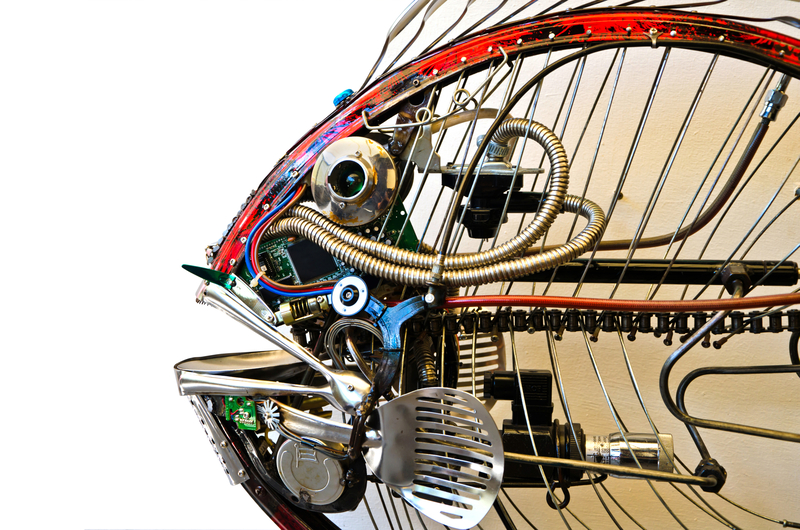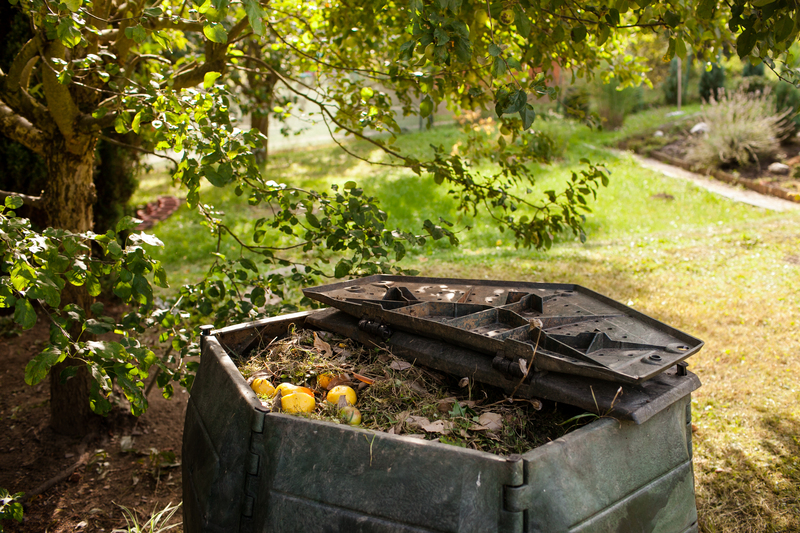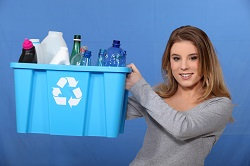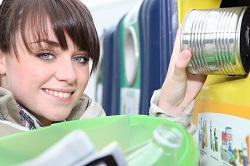Pots and Pans Recycling: Making Your Kitchen Eco-Friendly
Posted on 30/06/2025
Pots and Pans Recycling: Making Your Kitchen Eco-Friendly
Are you looking to reduce your kitchen's environmental footprint? One effective approach is recycling pots and pans. The process might seem straightforward, but there's more to it than just tossing old cookware in the recycling bin. This comprehensive article will walk you through everything you need to know about making your kitchen eco-friendly by responsibly disposing of and reusing cookware.

Why Recycle Old Pots and Pans?
Pots and pans recycling isn't just about decluttering; it's a crucial step toward a sustainable lifestyle. Our kitchens are filled with metal cookware that, when improperly discarded, can take centuries to break down in landfills. This not only wastes valuable resources but also contributes to environmental pollution.
- Preserves natural resources: Extracting metals for new cookware consumes energy and depletes finite resources.
- Reduces landfill waste: Old pots and pans occupy unnecessary space and often leach harmful chemicals when left in landfills.
- Minimizes pollution: Proper disposal prevents toxic substances from contaminating soil and water systems.
- Promotes a circular economy: Recycling supports the reuse of valuable materials in the creation of new products.
What Types of Pots and Pans Can Be Recycled?
Not all cookware is created equal. Understanding what you can recycle is vital for success in your kitchen eco-friendly journey.
Metal Cookware
- Stainless Steel: Highly recyclable due to its steel content and durability.
- Aluminum: Lightweight and commonly recycled, but must be clean and debris-free.
- Copper: Valuable and often sought after by metal recyclers.
- Cast Iron: Can be recycled but is better suited for upcycling due to weight and longevity.
Make sure to remove non-metal parts such as plastic handles, rubber grips, or glass lids before recycling.
Non-Recyclable Cookware
- Non-Stick Pans: Teflon or ceramic coatings are usually not accepted in curbside recycling programs.
- Cookware with Multiple Materials: Items made from bonded materials (like steel and aluminum sandwiched design) might need extra processing, or be rejected by recycling centers.
_Tip:_ Check with your local recycling center about specific requirements or restrictions concerning pots and pans recycling.
Methods of Recycling Pots and Pans
Eco-friendly kitchen initiatives begin with understanding how to recycle cookware responsibly. Find the approach that best fits your situation:
1. Municipal Recycling Programs
- Many cities offer scrap metal collection as part of household waste management.
- Contact your local sanitation or recycling center and ask about accepting kitchenware recycling.
- Some programs require you to drop off items at a dedicated site rather than using curbside bins.
2. Scrap Metal Dealers
- Metal recycling facilities welcome pure metal cookware like stainless steel, aluminum, and copper.
- Remove any non-metallic parts first. Some dealers may even pay you for valuable metals.
3. Manufacturer Take-Back Programs
- Check if the cookware brand offers a return or trade-in initiative for old pots and pans.
- Certain brands, such as Calphalon or Le Creuset, have eco-friendly recycling options or refurbishing programs.
4. Donation and Upcycling
- If your old pots and pans are still in usable condition, consider donating them to shelters, food banks, or thrift shops.
- An increasing number of schools, community centers, or art programs accept gently used cookware for various projects.
- Get creative! Upcycle an old pan into a plant pot, bird feeder, or kitchen wall decor.
Preparing Your Pots and Pans for Recycling
Recycling centers have specific requirements. To ensure your cookware is accepted and properly processed, follow these steps:
Step-by-Step Guide to Prepping Cookware for Recycling
- Clean thoroughly: Remove any food residue, oil, or burnt-on material.
- Detach non-metal components: Unscrew or pry off handles, knobs, and silicone/rubber grips.
- Separate lids and glass: Unless made entirely of metal, sets with glass lids should be recycled through glass waste streams or repurposed.
- Sort materials: Organize by type - aluminum, stainless steel, or copper - for efficient processing.
- Check with the center: Confirm guidelines (some have specific drop-off days or quantity limits).
Eco-Friendly Alternatives: Reduce, Reuse, and Upcycle Cookware
While recycling pots and pans is effective, the greenest approach begins long before you purchase a new skillet or saucepan. Consider the three pillars of sustainability:
1. Reduce
- Buy quality: Invest in durable cookware destined to last for decades, not years.
- Minimize clutter: Only buy pots and pans you genuinely need, avoiding single-use or trendy specialty items.
- Avoid disposable options: Say no to cheap non-stick pans with limited lifespan.
2. Reuse
- Repair minor damage, like tightening loose handles or seasoning cast iron pans to revive their function.
- Repurpose worn-out items in creative ways both inside and outside the kitchen (e.g., as planters or organizers).
3. Upcycle
- Garden Tools: Old frying pans can become quirky hanging planters or bird baths.
- Home Decor: Turn a unique copper pan into a wall clock or a large pot into a rustic centerpiece for your dining table.
- Organizational bins: Use cleaned pots for storage in your garage, pantry, or craft room.
Upcycling extends the life of kitchenware, reducing waste and fostering creativity in your home.
Common Mistakes to Avoid When Recycling Pots and Pans
- Including non-recyclable materials: Non-stick coatings or cookware with attached plastic/wooden handles can damage recycling machinery.
- Leaving food residue: Dirty cookware can contaminate a recycling batch, causing more harm than good.
- Not checking local rules: Recycling policies vary widely, so always verify before dropping items off.
- Discarding easily upcycled or donated items: Consider donating or upcycling before recycling, especially if the item is still functional.
How to Choose Eco-Friendly Cookware in the Future
To keep your kitchen sustainably green, evaluate cookware before you buy:
- Select 100% metal pans for ease of recycling at the end of their life.
- Avoid PFOA and PTFE (Teflon) coatings that are not recyclable and may release harmful substances.
- Consider cast iron, stainless steel, or copper as they are long-lasting and readily recyclable.
- Support brands with recycling programs or sustainable manufacturing practices.
Think 'lifecycle' when choosing cookware: How long will it last? How easily can it be recycled or reused?
Sustainable Kitchen Habits Beyond Pots and Pans Recycling
Making your kitchen eco-friendly means adopting sustainability in every area, not just cookware disposal. Here are some additional kitchen sustainability habits to embrace:
- Compost food scraps and reduce food waste by meal planning and proper storage.
- Use reusable alternatives for plastic wrap, zip bags, and paper towels.
- Choose energy-efficient appliances when replacing old equipment.
- Buy in bulk and use refill stations to cut down on single-use packaging.
- Grow herbs and vegetables in upcycled pots and pans--the ultimate kitchen-to-garden upcycle!

Frequently Asked Questions About Pots and Pans Recycling
Can I recycle pots and pans in my curbside recycling bin?
Usually not. Most curbside recycling programs do not accept cookware due to its size and mixed materials. Instead, use a scrap metal drop-off or a specialized recycling center.
What should I do with non-stick pans?
If the non-stick coating is severely damaged, they generally must go to landfill. Some manufacturers offer specific recycling or take-back programs for these items.
Can I recycle pots and pans with plastic handles?
No. Remove plastic, rubber, or wooden handles before recycling the metal portion. If the handle is not removable, consult your local recycling facility for guidance.
Are there brands that recycle old cookware?
Yes. Brands like GreenPan, Calphalon, and Le Creuset have recycling or trade-in programs. Always check their official websites for the latest information.
What happens to recycled pots and pans?
Recycled cookware is melted down and the raw metal is used in the production of new metal items, reducing the need for virgin ore extraction.
Conclusion: Green Kitchen, Greener Planet
Kitchenware recycling is a simple yet impactful step toward a cleaner environment and a healthier planet. By choosing the proper recycling methods, upcycling creative projects, and selecting sustainable cookware, you contribute to a greener future with every meal you prepare.
Let your kitchen be a beacon of sustainability! Embrace the habit of recycling pots and pans, inspire your family, and share your eco-friendly practices with your community.
For more guides on making your home eco-friendly--or for more tips on pots and pans recycling--stay tuned to our blog!
Latest Posts
Essential Knowledge: What You Need to Know About Builders Skips
Your Path to a Tidy Office: Successfully Clear Out and Organize
Avoid Pitfalls: Skip Hire Best Practices Examined
Sustainable Cardboard and Packaging Waste Disposal
Revolutionize Your Home Recycling with These Top Suggestions

 020 3875 4121
020 3875 4121 020 3875 4121
020 3875 4121




 House clearance
House clearance Rubbish collection
Rubbish collection When it comes to your house clearance London you won’t find a better firm in town than London Rubbish Removal! We have a range of ways to...
When it comes to your house clearance London you won’t find a better firm in town than London Rubbish Removal! We have a range of ways to... London Rubbish Removal is just waiting to help you...
London Rubbish Removal is just waiting to help you...





